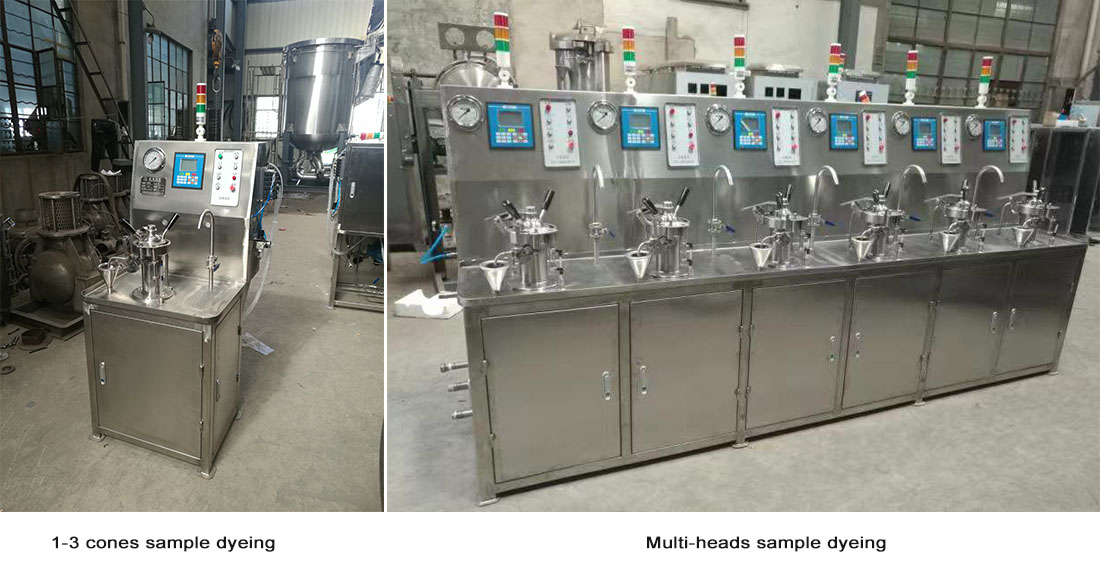Yarn sample dyeing is an important process for textile manufacturers to test the dye uptake, color fastness and shade accuracy of yarn before mass production. This stage of yarn dyeing requires precision, accuracy and repeatability to ensure the final product meets the desired color specification. In the past, yarn sample dyeing was done by hand, with technicians dipping each strand of yarn by hand, recording the dye recipe and tracking the results. However, with the advent of technology, advances in dyeing machinery revolutionized the yarn dyeing process, making it faster and more efficient.
One type of machine adapted for dyeing yarn samples is the laboratory dyeing machine. The machine is designed to simulate the conditions of industrial dyeing, but on a smaller scale. The machine has a built-in dye liquor circulation system driven by a motor to ensure that the dye liquor flows evenly. In addition, it features precise temperature control, providing precise dyeing conditions that replicate the conditions used in large-scale production processes.
Laboratory dyeing machines are designed to hold small quantities of yarn, usually between 100 and 200 grams. They offer extraordinary flexibility, allowing textile manufacturers to test and modify dye formulations at any time before executing larger orders. This flexibility is invaluable, especially for manufacturers who produce yarns in a wide range of colors and shades.
One of the most significant benefits of using laboratory dyeing machines for sample dyeing is that they produce an even dyeing throughout the entire length of the yarn. Furthermore, during the automated dyeing process, there is a lower risk of error due to the consistent working conditions of the machines. Technicians can also customize dyeing programs to suit specific yarn types or dye formulations, ensuring that the production process matches the specific needs of the yarn.
Laboratory dyeing machines are also environmentally friendly. The machines are equipped with advanced filtration systems to minimize the chemical waste generated during the dyeing process. This is a significant advantage, as textile manufacturing is one of the most polluting industries in the world. Yarn sample dyeing using laboratory dyeing machines reduces environmental impact while increasing the efficiency and uniformity of the production process.
In conclusion, if you are a textile manufacturer considering investing in sample dyeing equipment, laboratory dyeing machines are an excellent choice. They combine precision, accuracy, repeatability, and flexibility in a cost-effective package, offering many benefits that far exceed the initial investment cost.
Post time: May-06-2023

